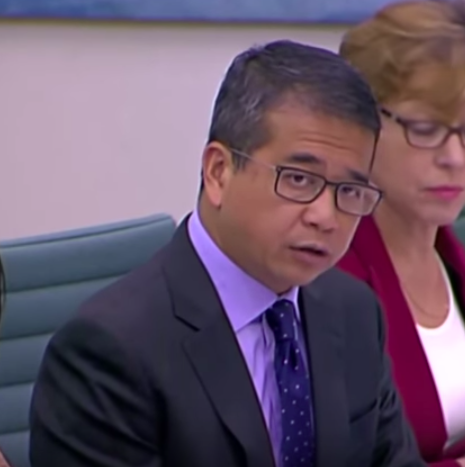Has there been any doubt that the Singapore government will produce something like the Protection from Online Falsehoods and Manipulation Act (POFMA)? Of course not. Not that long ago, the government took on the Western press and emerged unscathed with its restriction of publications order under which the Wall Street Journal, TIME and Far Eastern Economic Review, among others, had their circulation curtailed to prevent their allegedly profiting from controversial or slanted stories.
After the authorities got more self-confident and less of a clumsy elephant playing with a precious porcelain vase, for a while, there was some hope – when, I think, the more liberal elements of the People’s Action Party were once on the ascendancy – that the new Internet Age held promise of a more light-touch approach, of less interference with goings-on in social media. That proved to be a false new dawn, unfortunately. Everything is back to almost square one now. And it is not so much the Act per se I am worried about. At this stage of Singapore’s political development as the country inches from near autarchy towards a system with more checks and balances, giving so much more authority to the government to monitor and decide what should be said or written is risky. It is a major step backwards into the Spanish Inquisition era.
Whatever exceptionalism that we claimed to have had in the past will soon evaporate.
It will become a world of tighter control and more group-thinking conformity. There will be less margin for give and take. Despite the protestations that nothing has basically changed, so long as you are not spreading falsehoods or are not blatantly profiting from purveying falsehoods, the very threat of quick and painful punishment will hang over everything you do. Putting such power into the hands of one minister – or one government – is not advisable.
POFMA will have the following repercussions.
Its proponents – which include the government and elements of the mainstream media – will support it. For the government, it means having to deal with fewer irritants who they consider to be a pain in their neck with their wild allegations and, more often, mosquito bites. POFMA is the government’s convenient insecticide spray. As for the MSM, they believe all social media blogs and websites will have to operate under more conventional modes and be answerable to higher accuracy and professional (editorial) standards the way MSM are supposed to be. Basically, the days of the untamed west frontier of amateur writing masquerading as activist “journalism” are going to be over.
Group thinking will be entrenched as there is no dividend in being contrary and there is so much more to gain by being part of the furniture. In such an environment obsessed with facts, data and play-safe details, creativity will suffer. The dampening effect will stretch from the public arena through the civil service and burrow its ugly head into even apolitical academia where dissent may well end up being discouraged.
Self-censorship will lead to disillusionment. As a result, younger Singaporeans who have had enough of the stifling social, intellectual and political climate will cast their eyes overseas for more fulfilling lives.
And we used to think OB Markers were obnoxious.
Who killed the city’s night life? Our planners!


Long before Singapore got more developed, there was hyperactive night life in the city. The streets were very much alive at night. We were a 24/7 hub. There were so many people living and playing in the urban centre.
Even as we got more sophisticated, the hawker stalls, coffeeshops and restaurants were still there. In fact, in the 1970s-80s, the entertainment scene was just as impressive.
Singaporeans enjoyed probably one of the best variety of evening-into-morning night entertainment in Asia. Cabarets, night clubs, discos, supper clubs, hotel piano lounges. Every corner in the city has an attraction.
All this disappeared when the newer city planners took over. We ended up a sterile city with boring shopping malls and no street life.
And they are now talking about bringing life back into the city. Night life in any city is seldom all neat and pretty. It is usually messy and intriguing. Not in Singapore today, I think.
Tan Bah Bah is a former senior leader writer with The Straits Times. He was also managing editor of a local magazine publishing company.

